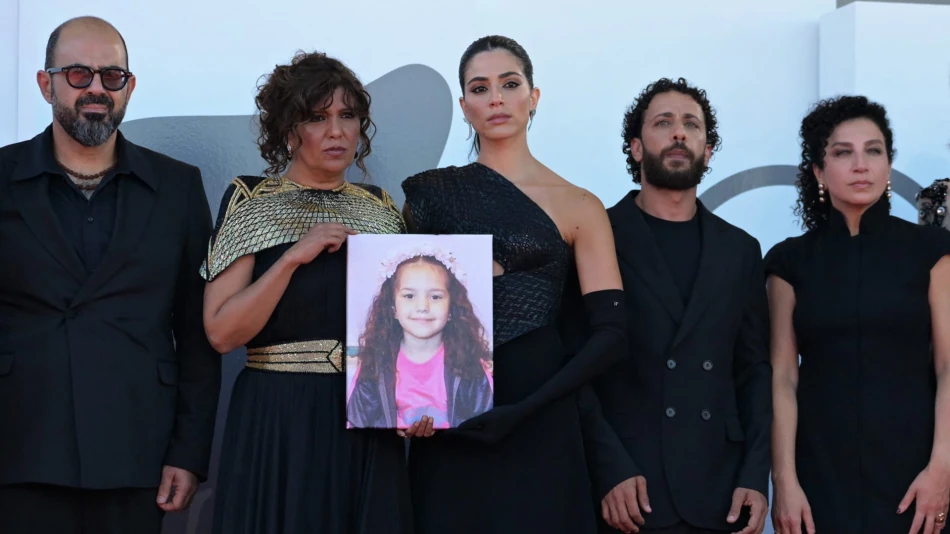
Artists Pledge to Boycott Israeli Film Institutions Over Gaza Conflict
Hollywood Stars Launch Film Industry Boycott Against Israeli Institutions Over Gaza War
Over 1,800 entertainment industry professionals, including Academy Award winners and A-list Hollywood stars, have signed a pledge refusing to work with Israeli film institutions they accuse of complicity in what they term genocide and apartheid against Palestinians. The unprecedented boycott movement, drawing explicit parallels to anti-apartheid activism in South Africa, represents the most significant organized resistance from the global entertainment industry since Israel's military campaign in Gaza began.
Star Power Behind the Movement
The pledge attracted marquee names including Oscar winners Olivia Colman, Emma Stone, and Tilda Swinton, alongside prominent actors Mark Ruffalo, Riz Ahmed, Javier Bardem, and Cynthia Nixon. This level of A-list participation signals a dramatic shift in Hollywood's traditionally cautious approach to the Israeli-Palestinian conflict.
The timing coincides with growing international outcry over images of starving Palestinian children and the humanitarian crisis in Gaza, which has generated unprecedented global attention to the conflict's civilian toll.
Strategic Targeting of Institutions, Not Individuals
The boycott carefully distinguishes between Israeli institutions and individuals, stating it does not call for ending work with Israeli filmmakers personally. Instead, signatories pledge to avoid "Israeli cinematic institutions - including festivals, cinemas, broadcasting companies, and production companies - complicit in genocide and apartheid against the Palestinian people."
This institutional focus mirrors successful boycott strategies used against South African apartheid, which the pledge explicitly references as inspiration. The approach aims to pressure government-linked cultural organizations while avoiding accusations of targeting individuals based on nationality.
Legal and Moral Framework
The pledge grounds its arguments in recent international legal developments, citing the International Court of Justice's 2023 advisory opinion declaring Israeli occupation of Palestinian territories illegal. It also references assessments by human rights experts and researchers characterizing Israel's military operations in Gaza as reaching the threshold of genocide.
The document accuses Israeli film institutions of participating in "camouflaging or justifying" violations against Palestinians, suggesting these organizations serve propaganda functions beyond cultural activities.
Cultural Battleground Intensifies
The boycott emerges as cultural institutions become increasingly polarized battlegrounds over the Gaza conflict. Last week, "The Voice of Hind Rajab," a film about a five-year-old Palestinian girl killed by Israeli forces, received significant attention at the Venice Film Festival. Notably, the film's executive producers include Brad Pitt and Joaquin Phoenix, indicating growing willingness among major Hollywood figures to support Palestinian narratives.
Historical Precedent and Effectiveness
The South African apartheid comparison is strategically significant. Cultural boycotts played a measurable role in isolating the apartheid regime, with major artists refusing to perform in South Africa and film festivals excluding South African productions. However, the current geopolitical landscape differs substantially, with Israel maintaining strong diplomatic and economic ties with major Western powers.
Industry and Government Response
Israeli authorities have previously rejected boycott calls as discriminatory, a position they're likely to maintain. The entertainment industry response will prove crucial - major studios, streaming platforms, and festival organizers face pressure to clarify their positions on Israeli institutional partnerships.
The boycott's success will largely depend on whether it gains support from industry gatekeepers beyond individual talent. Unlike the South African era, today's global entertainment landscape involves complex international co-production deals and streaming distribution networks that could complicate enforcement.
Broader Implications for Cultural Diplomacy
This movement represents the most significant challenge to Israel's cultural diplomacy efforts in decades. Israeli film festivals and cultural institutions have long served as soft power tools, presenting a progressive, artistic face of Israeli society to international audiences.
The boycott's emphasis on institutional complicity rather than blanket cultural isolation suggests a more sophisticated approach than previous campaigns. By targeting specific organizations while leaving room for individual artistic collaboration, the movement attempts to avoid accusations of cultural censorship while maintaining pressure for policy change.
Most Viewed News

 Sara Khaled
Sara Khaled






